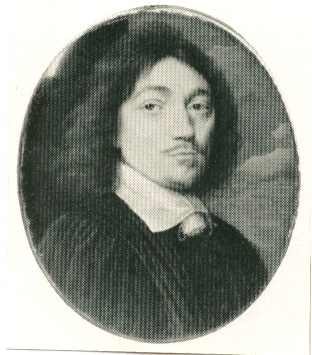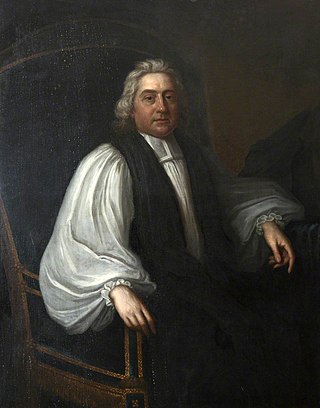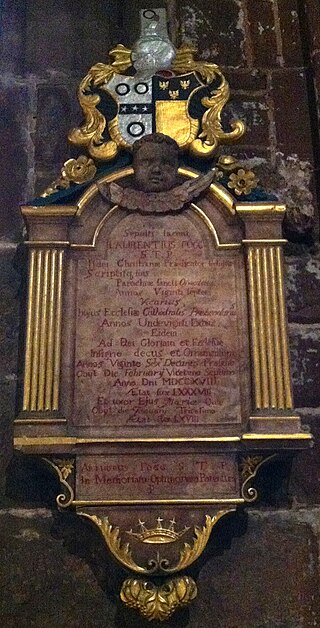Related Research Articles

Thomas Fuller was an English churchman and historian. He is now remembered for his writings, particularly his Worthies of England, published in 1662, after his death. He was a prolific author, and one of the first English writers able to live by his pen.

John Gauden was an English cleric. He was Bishop of Exeter then Bishop of Worcester. He was also a writer, and the reputed author of the important Royalist work Eikon Basilike.
William Burkitt was a biblical expositor, educational pioneer, rector of Milden, Suffolk, and vicar and lecturer of Dedham, Essex, in England.
John Scory was an English Dominican friar who later became a bishop in the Church of England.
Daniel Burgess (1645–1713) was an English Presbyterian minister.
Thomas Edward Bridgett was an English Catholic priest, missionary preacher and historical writer.

Ofspring Blackall, Bishop of Exeter and religious controversialist, was born in London.
Matthew Wren was an English politician and writer. He is now known as an opponent of James Harrington, and a monarchist who made qualified use of the ideas of Thomas Hobbes.

William Jenkyn (1613–1685) was an English clergyman, imprisoned during the Interregnum for his part in the 'Presbyterian plot' of Christopher Love, ejected minister in 1662, and imprisoned at the end of his life for nonconformity.

Humphrey Gower (1638–1711) was an English clergyman and academic, Master of Jesus College, Cambridge, and then St. John's College, Cambridge, and Lady Margaret's Professor of Divinity.
Thomas Ford (1598–1674) was an English nonconformist minister, a member of the Westminster Assembly and ejected minister of 1662.
Robert Adkins was one of the most notable of the two thousand ejected ministers of 1662.
William Clagett (1646–1688) was an English clergyman, known as a controversialist.

John Edwards (1637–1716) was an English Calvinistic divine.
Brampton Gurdon was an English clergyman and academic, Boyle lecturer in 1721.
Samuel Eaton (1596?–1665) was an English independent divine.

Laurence Fogg or Fogge (1623–1718) was dean of Chester.

Thomas Jacomb (1622–1687) was an English ejected minister.
Richard Watson was a Church of England clergyman, Royalist divine, controversialist, and poet.
Theophilus Wodenote was a Church of England clergyman and Royalist divine.
References
- ↑ "Bartlet, John (BRTT615J)". A Cambridge Alumni Database. University of Cambridge.
- Attribution
![]() This article incorporates text from a publication now in the public domain : "Bartlet, John". Dictionary of National Biography . London: Smith, Elder & Co. 1885–1900.
This article incorporates text from a publication now in the public domain : "Bartlet, John". Dictionary of National Biography . London: Smith, Elder & Co. 1885–1900.